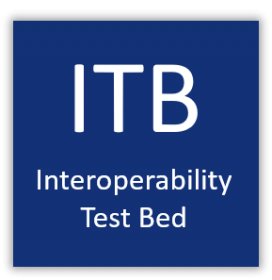
The source code for the Test Bed’s validators is now published as open-source on GitHub.

The Test Bed’s validators are popular components that allow users to complement their specifications with online validation services. Validators are provided for common syntax types (XML, RDF, JSON and CSV) and can either be managed by the Test Bed or installed by users on their own infrastructure. The latter case can be achieved through various installation means with the simplest being through Docker, using the validators’ public images hosted on the Docker Hub.
To foster transparency, reuse and community contribution, the Test Bed has now published the source code of all validators as open-source repositories on GitHub. These repositories can be used to see how individual validators are built but also serve as the basis for contributions and custom validator forks. In addition, each GitHub repository will now be used as an additional feedback channel, allowing users to raise issues in each validator’s issue tracker.
The table below provides the links to each validator’s repository:
| Validator | GitHub repository |
|---|---|
| RDF validator | Source code | Issue tracker |
| XML validator | Source code | Issue tracker |
| JSON validator | Source code | Issue tracker |
| CSV validator | Source code | Issue tracker |
Using the GitHub repositories for feedback offers an interesting alternative to emailing the Test Bed team's functional mailbox (DIGIT-ITB@ec.europa.eu). Issues raised in GitHub allow discussions and cross-referencing of similar topics, and are publicly available for all users. This public availability is particularly interesting as it allows common topics to be shared, inviting other users to contribute and react.
In terms of keeping users up to date, GitHub’s notifications provide an additional channel that most existing GitHub users would prefer for receiving updates. Users may choose to follow a validator’s repository, releases, or specific issues; resulting in notification emails when such activity occurs. These notifications provide an alternative to subscribing to Joinup’s news digests and enable finer control on specific points of interest (e.g. following an issue’s ongoing discussion).
The open-source publishing of the Test Bed’s validators provides an additional resource in service of specification conformance testing. For more information on each validator you are invited to check its detailed validation guide (for XML, RDF, JSON and CSV validation). Finally, details on the Test Bed itself can be found in its Joinup space with its value proposition being a good starting point for newcomers. To remain updated of all the latest Test Bed news:
Referenced solution


